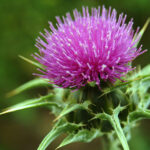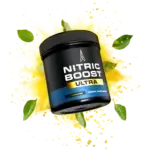Moringa oleifera, also known as the “tree of life,” is widely recognized for its exceptional therapeutic and nutritional properties. Native to tropical and subtropical regions of Asia and Africa, this plant has been used for centuries in various cultures to treat a range of health conditions, thanks to its proven medicinal qualities. Recently, it has gained global attention as a “superfood” due to its high levels of essential nutrients and bioactive compounds. Below, we delve deeper into the scientific data on Moringa’s benefits, focusing on its therapeutic applications, potential side effects, and treatment possibilities.

Nutritional Composition and Bioactive Compounds of Moringa Oleifera
Moringa oleifera contains a wide array of bioactive compounds that contribute to its therapeutic and nutritional benefits. The leaves of Moringa are particularly rich in vitamins A, C, and E, minerals like calcium, iron, potassium, magnesium, and zinc, in addition to proteins, essential fatty acids, and antioxidants such as flavonoids, phenols, tannins, and glucosinolates.
Additionally, Moringa seeds contain substances that have antibacterial, antifungal, and anti-inflammatory properties. The high content of beta-carotene (vitamin A) and vitamin C in the leaves also gives the plant antioxidant properties, which are crucial for preventing cellular aging and reducing the risk of chronic diseases.
Scientific Potential and Clinical Studies
1. Antioxidant and Anti-inflammatory Properties
Studies show that the bioactive compounds in Moringa oleifera have significant antioxidant effects, protecting the body from damage caused by free radicals. Research published in the Journal of Food Science and Technology (2015) revealed that Moringa leaves have a higher capacity to neutralize free radicals than other superfoods such as acai and spinach. This occurs due to the high content of flavonoids such as quercetin and catechin, which directly protect cells against oxidative stress.
Another relevant study published in Toxicology Reports (2018) showed that Moringa extracts also have anti-inflammatory properties, reducing inflammatory markers such as TNF-α and IL-6, substances associated with various inflammatory and chronic conditions, such as arthritis and heart disease.
2. Blood Sugar Control and Diabetes
Moringa oleifera has proven effective in controlling blood glucose, especially in individuals with type 2 diabetes. A clinical study published in the Pakistan Journal of Biological Sciences (2006) demonstrated that Moringa extract administration in individuals with type 2 diabetes significantly reduced postprandial blood glucose levels (after meals) by up to 28%, compared to a placebo.
Another study published in Phytotherapy Research (2012) found that Moringa can help lower triglyceride and cholesterol levels in the blood, effects that are particularly beneficial for individuals at risk of cardiovascular diseases.
3. Antibacterial and Antiviral Properties
In addition to its antioxidant and anti-inflammatory qualities, Moringa also stands out for its antimicrobial properties. Oil extracted from Moringa seeds has shown effectiveness against a variety of bacteria and fungi. A study published in the Asian Pacific Journal of Tropical Biomedicine (2015) showed that Moringa extract is effective against Staphylococcus aureus and Escherichia coli, two bacteria commonly associated with foodborne and skin infections.
Moringa Oleifera:Therapeutic Applications and Treatment Possibilities

1. Cardiovascular Health
Due to its antioxidant and anti-inflammatory effects, Moringa has been studied as a complementary treatment for heart disease. Its effect in reducing LDL cholesterol (“bad cholesterol”) and triglyceride levels can help prevent atherosclerosis and reduce the risk of heart attack and stroke. The presence of unsaturated fatty acids in Moringa oil also contributes to cardiovascular health, promoting a healthy lipid profile.

2. Digestive Health and Detoxification
Moringa leaves contain dietary fiber, which improves bowel movement and aids in digestion. Additionally, the plant has detoxifying properties, helping eliminate toxins from the body. A study published in the Journal of Medicinal Plants Research (2013) showed that Moringa extract has the potential to protect the liver from toxin-induced damage due to its antioxidant and hepatoprotective effects.

3. Skin and Hair Health
The use of Moringa in cosmetics has grown significantly, thanks to its moisturizing, anti-inflammatory, and antioxidant properties. Moringa oil is widely used in products for skin hydration, preventing premature aging, and treating acne. It is highly nutritious, rich in essential fatty acids like oleic acid, which deeply penetrates the skin, moisturizing without making it greasy.
In terms of hair, studies show that Moringa can improve blood circulation in the scalp, stimulating hair growth and preventing hair loss. Topical application of Moringa oil can also help restore shine and strength to hair, preventing damage and breakage.
Possible Side Effects
Although Moringa is widely considered safe when consumed in moderate amounts, it is important to be aware of potential side effects, especially when used excessively or incorrectly. The most common side effects include:
- Laxative Effects: Moringa has a mild laxative effect, which may cause diarrhea or abdominal cramps in high doses.
- Interaction with Medications: Moringa may interact with blood pressure or diabetes medications, enhancing the effects of these drugs and leading to excessive drops in blood pressure or blood glucose levels.
- Root Toxicity: Moringa roots, as well as its bark, may be toxic and should not be consumed, as they contain substances like moringine and spinasine, which can cause adverse effects such as poisoning and paralysis.
- Pregnancy and Breastfeeding: Pregnant or breastfeeding women should consult a healthcare provider before consuming Moringa, as some compounds in the roots may affect the health of the fetus or infant.
Conclusion: The Potential of Moringa Oleifera
Moringa oleifera is a plant with significant scientific potential, offering a wide range of health benefits, from the prevention of chronic diseases to the treatment of specific conditions such as diabetes, heart disease, and digestive disorders. Additionally, its effects on skin and hair health make it a valuable ingredient in the cosmetics industry.
However, like any supplement or treatment, its use should be done with caution and, whenever possible, under medical supervision, especially in high doses or in individuals with pre-existing health conditions. Side effects are rare and generally associated with excessive or improper use of the plant, making Moringa a safe ally when consumed correctly.
With its bioactive compounds and unique properties, Moringa oleifera continues to prove itself as one of nature’s most powerful plants, with therapeutic potential that is still being explored by researchers around the world.

Thank you for reading this review! If you found it helpful and want to continue exploring more informative content like this, please consider making a donation to support our blog. Your contributions help keep us going and ensure we can keep delivering valuable content to you. And if you are interested in the product, don’t forget to buy it through our link. It would help us a lot. Thank you for your support!









rtfexpghdjjmlfwnxqvphriegqeqiz